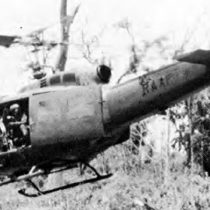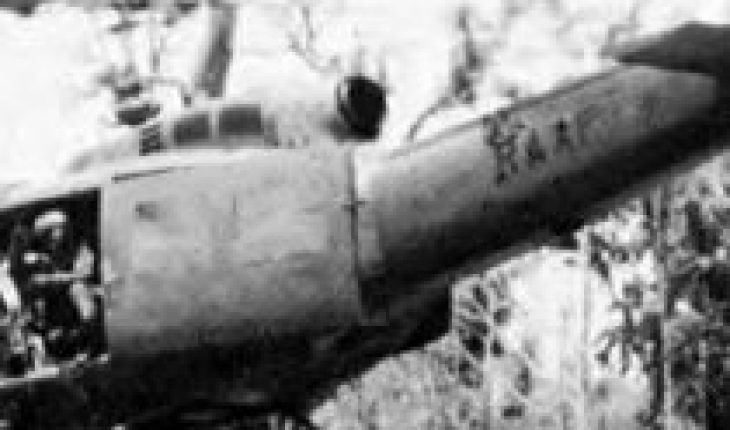
The Mostrador has become an essential means of discussing security and defense issues, fostering dialogue and the exchange of ideas on an issue that is relevant to our country. Moreover, ad portas of a constitutional assembly, whose main task will be to address the balances and balances of power in the political conduct of the Republic and no one can deny that the power of arms is a considerable power that has to be discussed and established with meridian clarity.
Don Eduardo Santos makes a valuable contribution to the discussion, as he proposes a methodology to reach conclusions of design and structure of forces that makes it seem simple and cartesian logic to perform numerical calculations of computation, and ready, Chile’s security and defense problems are solved. Unfortunately, solving political or strategic problems is not as easy as solving an equation, as they are non-structurable problems.
I would like to leave for agreeing with Eduardo Santos on one aspect of his diagnosis. It states to us that “to understand this situation, it is necessary to remember that in recent decades our Armed Forces have continued to apply an outdated 19th-century doctrine, to operate in the 21st century, with 20th-century technology, intimidating neighboring countries through military capabilities inconsistent with foreign, defense and budgetary policies and the the case without the dividends of Peace.” This statement contains only one great truth and one component that he must demonstrate, for it is not at all evident. In addition, the most relevant variable is left out of the equation: the preparation and professional capacity of force. More than technology, it is the preparation of the relevant personnel and the most powerful weapon remains its value and intellect.
The great truth is that we have been developing military capabilities inconsistent with foreign, defense and budgetary policies for several decades, because those policies that materialize civilian political command over FF.AA. have been sectoral attempts of goodwill, are not coordinated and aligned in a security structure and policy, which visualizes Chile’s challenges, at least within four years. There has been no political will to assume that responsibility. Civil political command and control are exercised and manifested through assigned missions, objectives and resources. Where are the Foreign and Defense policies of the State of Chile? Both, subsidiary policies of the National Security Policy. Where are the subsidiary foreign and defense strategies of the policies listed above?
It seems that, in recent decades, national political driving was comfortable to resolve the gun or butter dilemma titled the article in comment with the Copper Act for the procurement of material and the legal floors of the defence budget referenced to the 1989 budget, which were still breached by the budget execution authorization.
This solution did not require the political cost of deciding unpopular but necessary and even vital issues. The claim that Chile’s FF.AA. uses 19th-century doctrine to operate 20th-century technology in the 21st century is striking. The weight of the test rests with the engineer to prove his claim that the doctrine of Chile’s FFAA is from the 19th century. We could not be, today, interacting militarily with first-world powers, with 19th-century doctrines, if greater requirements and praise are permanently received from partner countries and the region to share our experience.
The most notable thing about Mr. Santos’ article is his mathematical methodology for reaching strategic conclusions. It applies the potential computation calculation methodology used in military planning processes, usually at the operational level, to perform feasibility and acceptability tests in the development of specific operational designs and courses of action, i.e. in the presence of tasks given, in a theatre of operations, to a specific adversary in a given time horizon.
That’s a profound and very dangerous mistake. Military capabilities are structured according to the defense of national interests and possible scenarios, in a visualization of likely future battlefields, in which it is key to define the character of the potential next conflict (traditional, asymmetrical or hybrid?). The computation of potentials is a toolmethodologically more appropriate to the former, that is, the use of traditional force, as long as it measures the tangible and appreciates the intangible (value, moral strength, discipline, cohesion of force, etc.). The same thing that Mr. Santos criticizes about the lack of political guidance and leadership to articulate Foreign Relations, Defense and budgetary policies, he applies it in his methodology. What Foreign Affairs and Defence Policy did Mr. Santos use to size inventory material and staffing of the Chilean Armed Forces?
If we do not depart from the beginning, from the political leadership that leads and articulates the instruments of power and capabilities of the State, we will not come to any valid results. May we implement the constitutional obligation of the President of the Republic to promulgate his National Security Policy for his period and that the ministers of RR.EE. and Defence, also, enact their respective policies in accordance with the respective Senate committees. Only then, with clear political leadership in their orientation, does the time come for specialists to formulate and optimize the military capabilities solutions required to meet civil political driving orders to ff.AA. The last stage of the process is to put numbers on it and optimize the budget.
Finally, Mr. Santos gives us an idea of great strength, which is that of the “peace dividends”. May I remind you that only shareholders are entitled to dividends. If you don’t invest in defense, you won’t have any dividends. In addition, it is worth wondering whether we have not enjoyed the dividends of peace, having adequate military capability, which has inhibited others from affecting our interests.
However, I believe that the value of these opinions forces us to re-article our defense community, to talk and discuss the relevant of these issues, to find the best solution that the country requires, through consensual and robust work. Chile deserves it.
The content poured into this opinion column is the sole responsibility of its author, and does not necessarily reflect the editorial line or position of El Mostrador.





